by Davide Fioraso
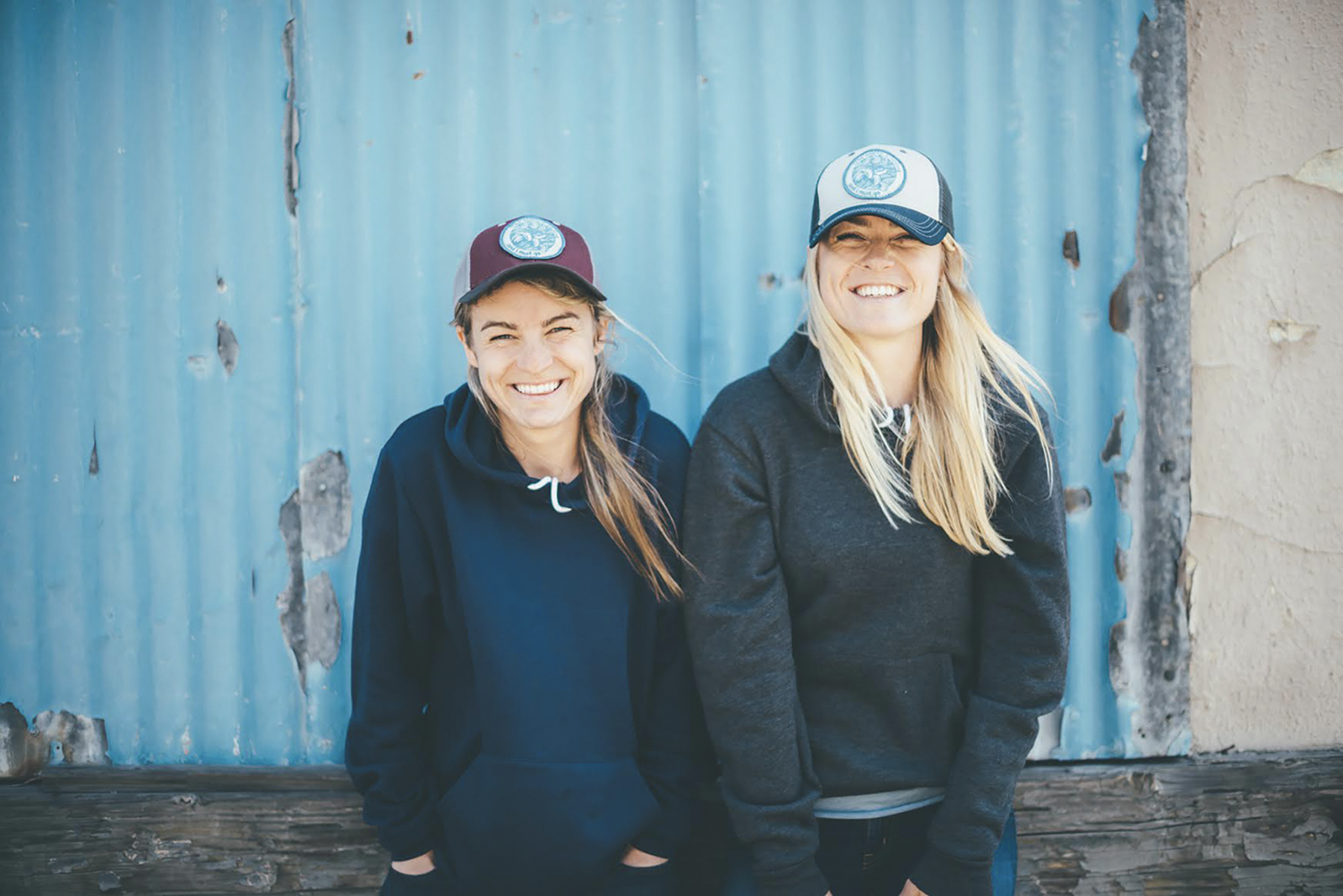
Salmon Sisters, sustainable fishing
Emma and Claire grew up in the remote Aleutian Islands, a group of islands between the northern Pacific and the Bering Sea, which stretches from Alaska to the Kamchatka peninsula. They entered the world of commercial fishing by working on the family boat, then found inspiration from the local culture and founded their own company to raise awareness about the role and principles of sustainable fishing. They became famous in September 2016 thanks to a cover on National Fisherman and they recently were on the Forbes 30 Under 30 list in the Leveraging Business Smarts to Save the World category. They are the Salmon Sisters.
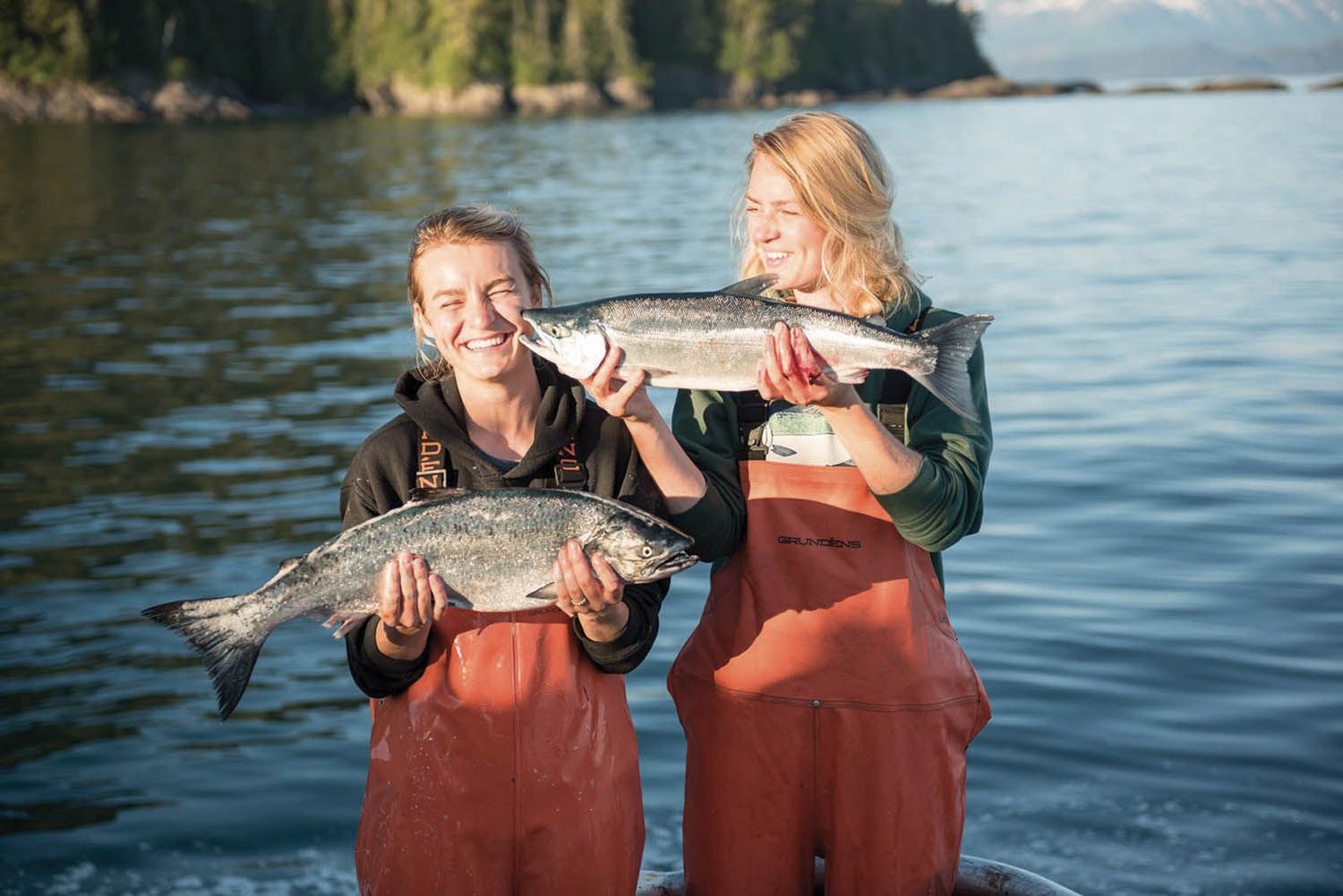
How did you grow up and how did you get in contact with the fishing world?
We grew up in the Aleutian islands of Alaska. Our farm worked with alternative energy and we were completely self-sufficient. Claire and I were divided between the house with mom, and the fishing boat, with our father. We spent most of our time chopping wood to feed our salmon smokehouse, looking for clams in the low tide pools, growing and harvesting vegetables from our garden, making fish hooks or stocking salmon for the winter. During middle school we worked on the boat all summer to save the college money. Life was simple but good and we soon learned to work hard.
What does responsible fishing mean?
Alaska has one of the few governments in the world truly committed to sustainability. It is a commitment that dates back to 1959, when Alaska became a real state and the Alaskans wrote about sustainability in their own Constitution. They did it by asking that all fishing activities would be managed responsibly, to guarantee the products of the sea to future generations. The sense of family unity of those who participate in fishing in Alaska is the most important thing for the long-term sustainability of our products. Many activities are family-run and often the same families have been fishing for generations in the same waters, using the same artisan techniques. This kind of participation supports local economies.
In addition to strengthen the correct management of the oceans, what is your business about?
We celebrate the coastal heritage and the wild places in which we live and work. In addition to selling what we fish from salmon, to black cod and halibut, we strive to tell what the sea offers through quality products and design. We mainly produce clothing and accessories that can be worn by women and men who work at the sea, who represent our community and the lifestyle of us fishermen.
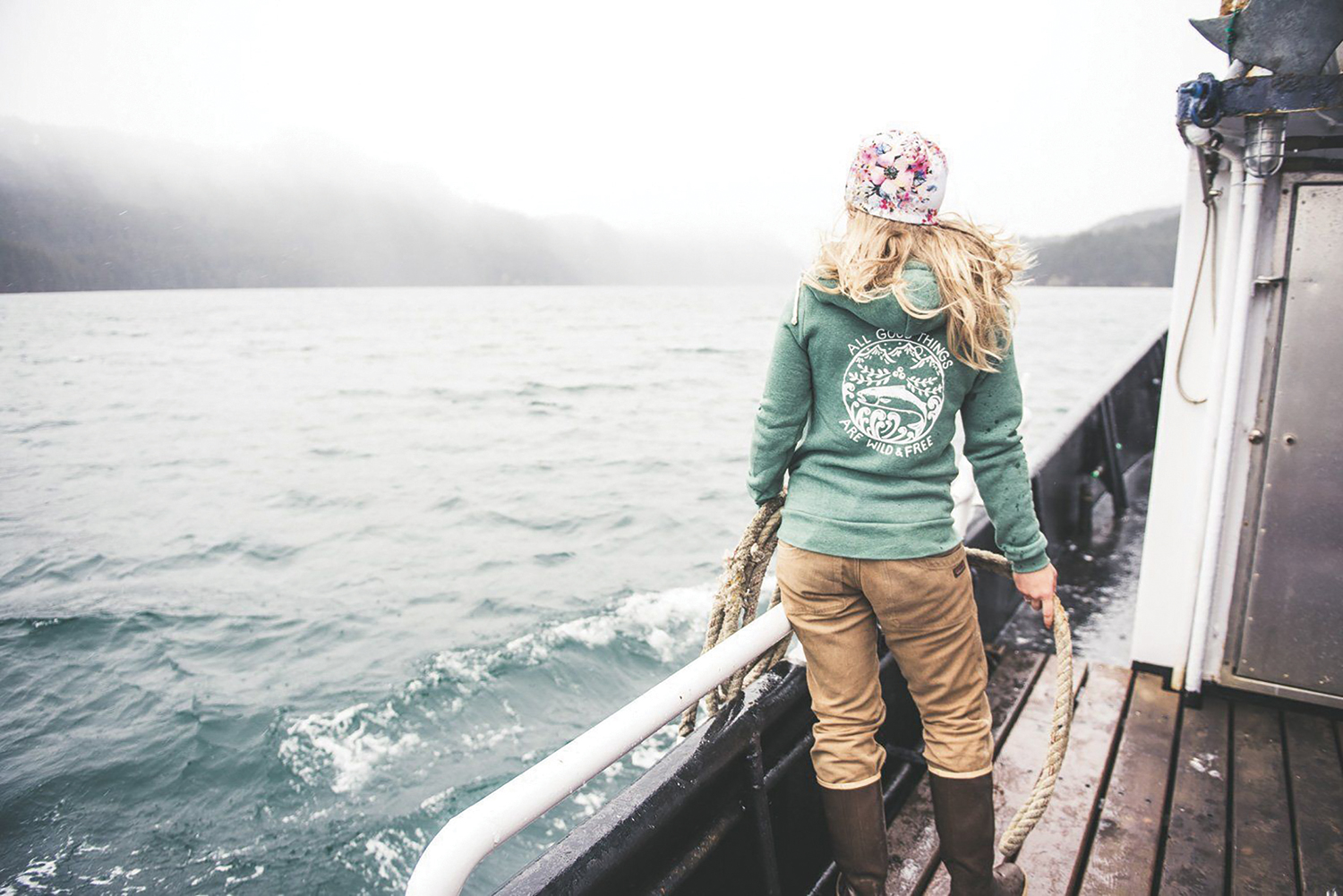
In 2016 you’ve founded the Give Fish Project. What is it about?
We founded the Give Fish project to give something back to the community that has supported us and our business over the years. Eating the products of our sea makes us feel healthy, happy and strong, and it’s something we want to share with as many people as possible. 1% of our sales go to the Food Bank of Alaska, supporting fishermen who harvest this delicious source of protein and those who need it most. As Salmon Sisters we have donated over 100,000 packs of wild salmon caught in the south-east and transformed by Silver Bay Seafoods for the Food Bank of Alaska, which distributes it throughout the state, where 1 person every 7 fight for hunger. We are proud of our role in fighting food insecurity by sharing the generosity of the ocean; we hope to inspire other companies to find creative ways to face these challenges. We owe the success of Give Fish Project to all the sisters and brothers who wear our clothes and support our business with their purchases.
Sea products meet design. How do you divide tasks?
Emma is the creative force behind the company, Claire the managerial part. Emma creates drawings and illustrations for our products, she studies and realizes packaging, writes for our website and directs marketing, while Claire manages logistics, inventory, strategic planning and internal operation. In the last year we have hired an extraordinary team of only women: an accountant, an operations manager, a customer service manager, a sales point manager and a logistics manager. They help us to keep our business alive while we’re at the sea.
Xtratuf, Kaladi Brothers, Skida. You have some amazing collabs.
We’ve been collaborating with brands that have a history in the Alaskan commercial fishing industry or are based here. In 2017 we started designing models for Xtratuf Boots, the classic brand of fishing boots, and they were a huge success among the women of our sector, who until then had never had women’s sizes or models. We have worked with Grundens, a company that produces fishing gear, on some products designed specifically for women. This year we collaborated with Kaladi Brothers, one of the most popular coffee roasters in Alaska, to create a personalized blend, cups and sweatshirts inspired by the tradition of “mug up”, our daily coffee break. Then Skida, a brand based in Vermont, we have always admired the work of its founder Corinne, our college mate. We look forward to continuing to collaborate with brands that are important to our lifestyle.
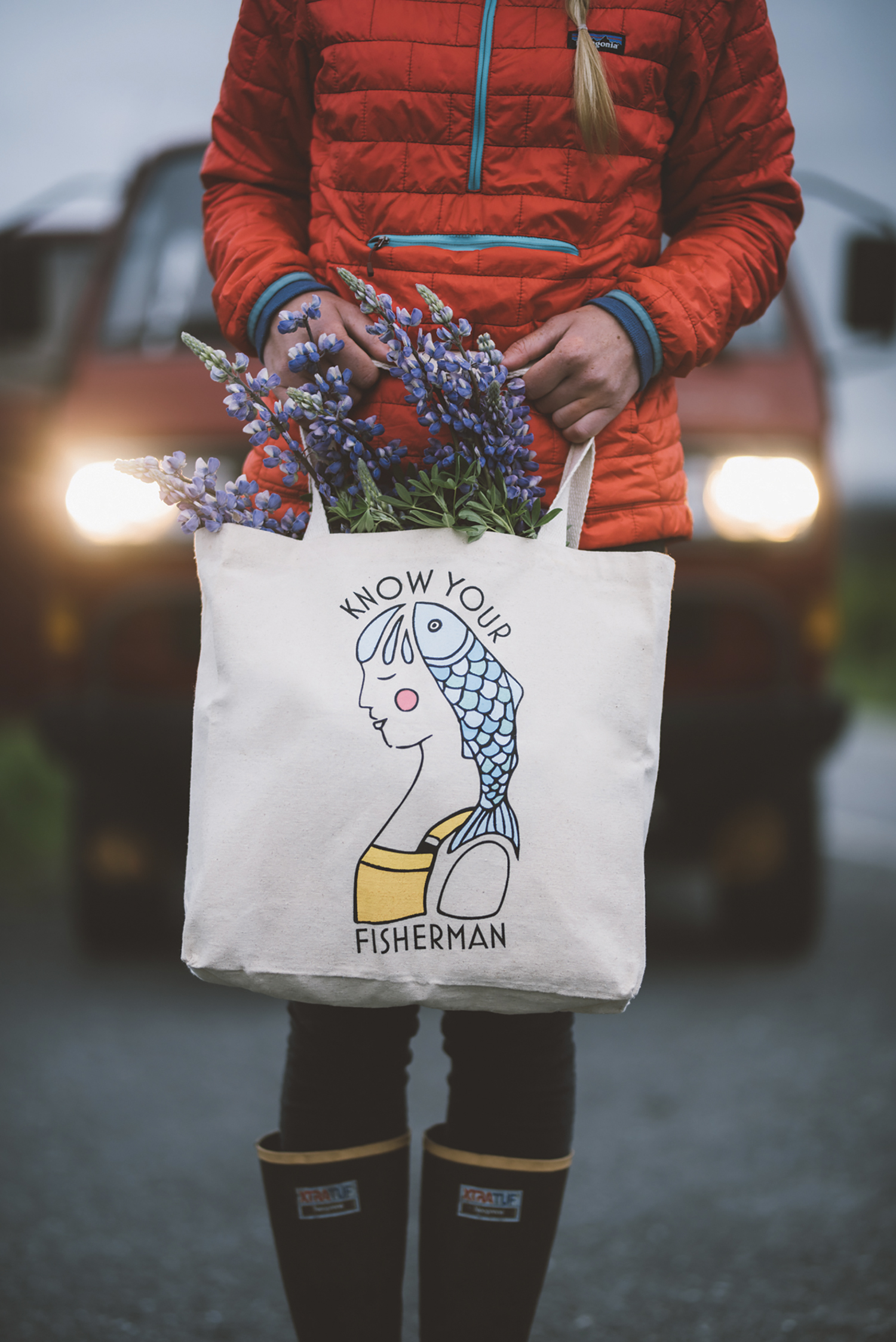
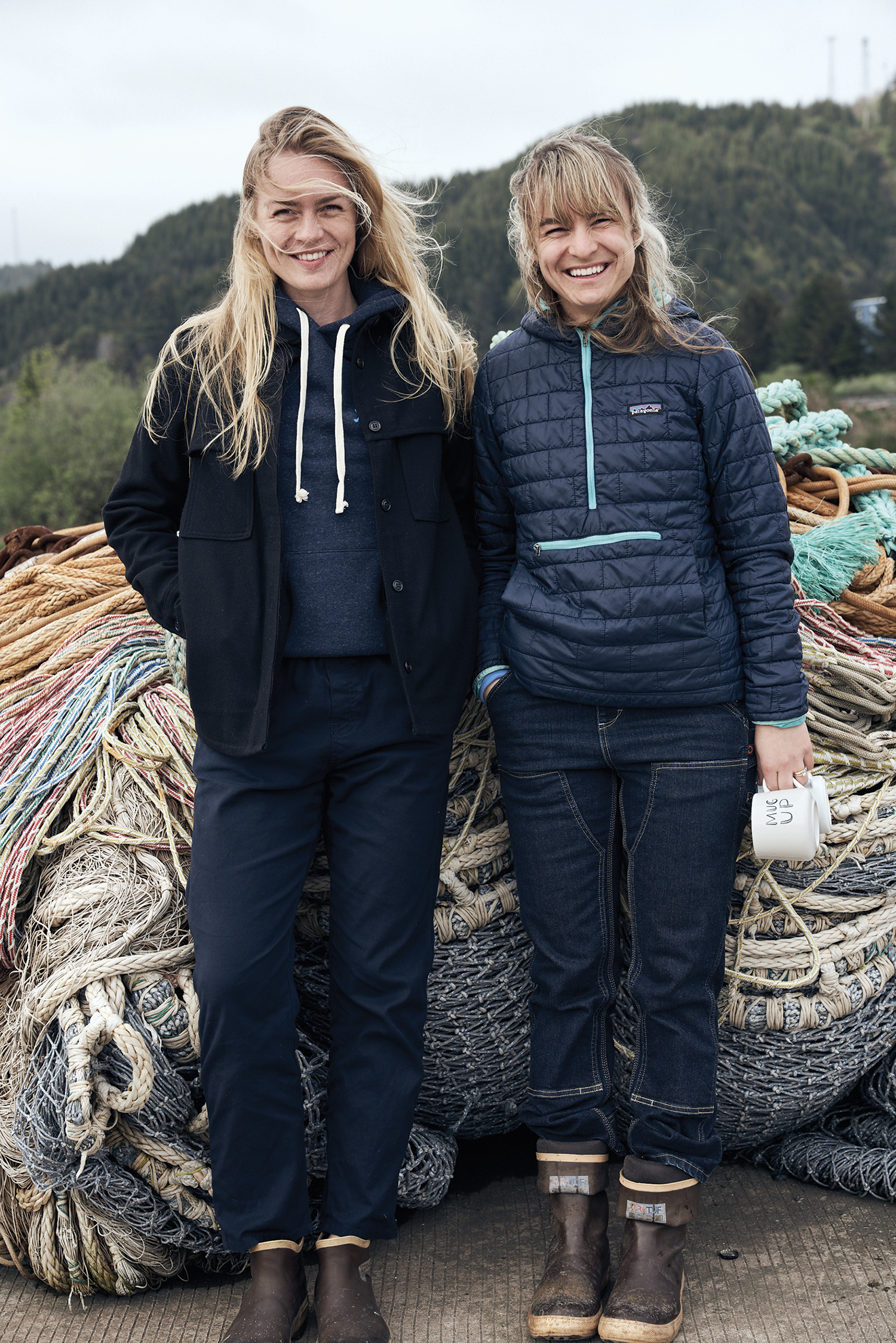
What are the roles of your flagship stores?
Our stores allow us to educate customers about the Alaskan fishing industry, our products and our lifestyle as commercial fishermen, letting us get their feedback in an authentic and direct way. The shops of Homer and Seward are open during the summer season and the holidays. This summer we will also open a small pop-up in Juneau. We love to know who are our biggest fans, to understand what they want and what they need.
Future projects? I’ve heard about a cookbook.
Yes, we are working on a cookbook that will be published in the 2020 spring and will include many fish recipes, cooking techniques on the boat and life stories between the land and the sea. We are excited to share our family’s favorite meals with the community and hopefully inspire people to eat more wild fish.
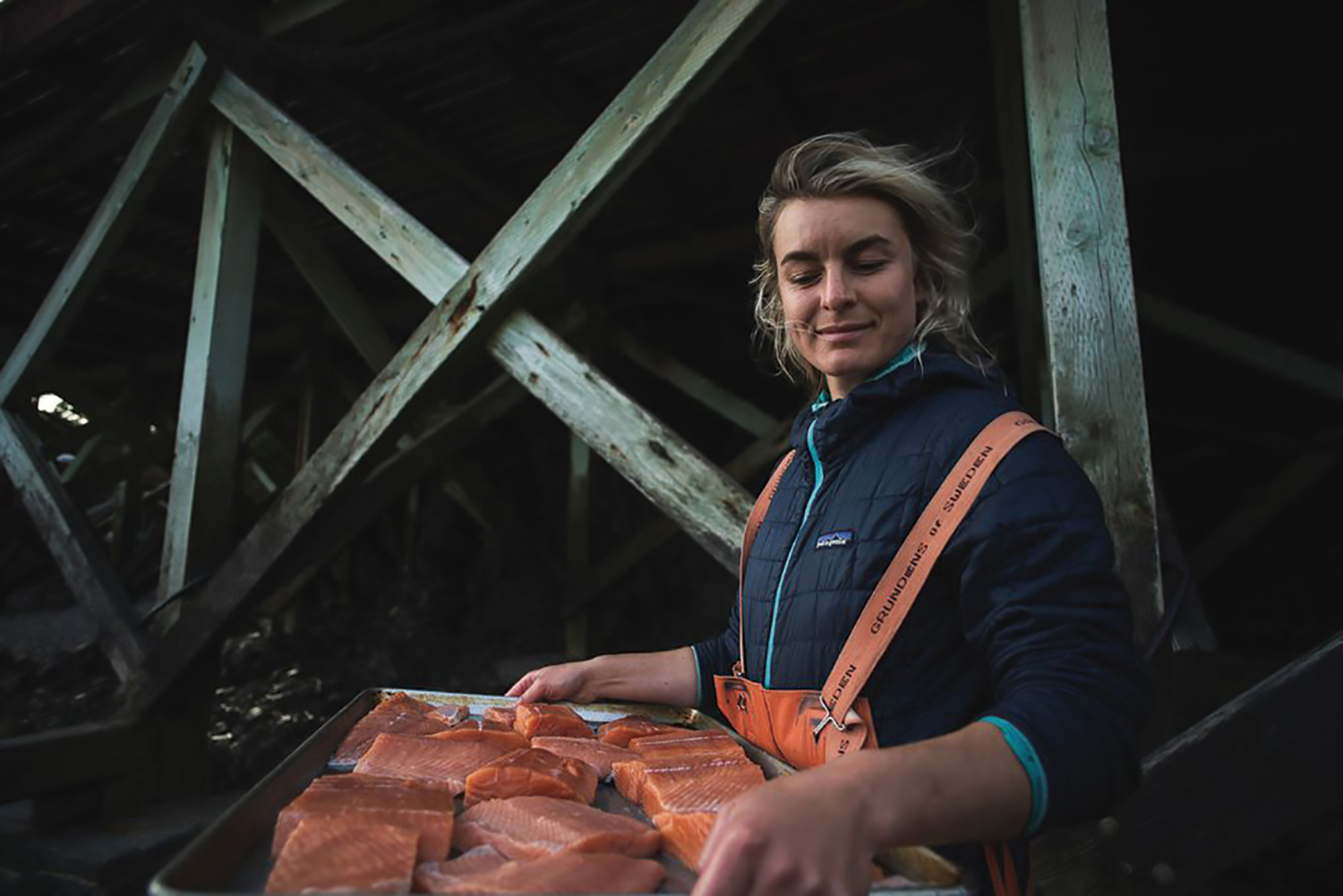
Share this Feature